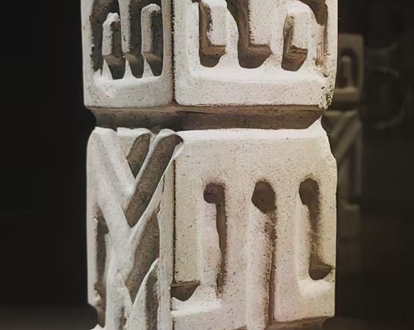(January 7, 2022)
Diego Tapia Figueroa, Ph.D. and Maritza Crespo Balderrama, M.A.
«Everything I do, I do with joy.»
Michel de Montaigne (trans. 2007, p.588)
The current times -it recurrent to say things like this since humans appeared- seem to be characterized by new generations trained in a demanding logic, of an almost absolutist character. They expect and demand that their needs should be met immediately by their fathers and mothers: do you love me? For your mission is to please me, to spare me the frustration, the waiting, the patience, and the work for the construction of tomorrow. My comfort and selfishness, my fears and prejudices impose the immediate today, this moment. Yours is not important, everything that´s mine is urgent.
Maintaining the custom (so petty-bourgeois) socially accepted of those who are professionals of the complaint (who also make those who love and/or care for them feel guilty); full-time complainers who manage to make their whims become priorities; making others enter into master-slave routines, in impoverished relationships without anyone knowing or caring. Victims/parasites in relationships with others, who propose themselves in this double position that tyrannizes, oppresses, and steals dignity. The experts in victimizing themselves have made another of the slogans of the old and triumphant capitalist marketing «win-win» come true.
They interact only when they ask for something when they have a need or demand, – passively or actively- that “needs” to be pleased in their desires; otherwise, they are encapsulated, abstracted in their silence, in their resentment, in their isolation, in an eternal infantilization. If on any rare occasion they recognize -with a self-critical spirit- their negligent and abusive attitude, it will be to ruminate, self-destructively, their self-victimizing guilt, not to propose themselves differently in relationships and generate transformations of relational styles that are cruel, exhausting, and not at all supportive. They have zero responsibility to stop doing what creates an ugly relational climate and instead, they remain in pure self-flagellation by stagnation in the repetition of these attitudes.
What matters to them when behaving like these silly characters, who impoverish existence, is to always be right and engage in an incessant power struggle; instead of making the other feel well treated, loved, and respected; because one also treats oneself with love, respect, and consideration. They spit -in reality, and metaphorically- on the idea and practice of reciprocity, of responsibility in creating a culture of common wellbeing, based on a transformative dialogue. Their words and actions are dogmatic because they refuse to connect, to bond, to commit to being different, authentic, to be with others.
We are surrounded by young victims -trained and equal to their parents- with the vision and mission of being faint-hearted. Hypersensitivity and the selfishness that identifies them, are their defenses against questioning and reflective criticism; they have kidnapped us in multiple bubbles with the alibi of political correctness, created by people lacking consistency and without interest in the construction of new lifestyles; people who can integrate and embody -with congruence- words like freedom, justice, equality.
A huge number of young men and young women have the inability to resolve their issues with relational intelligence, mobilizing their resources and strengths; anomie, abulia, and indifference to social responsibilities, which translates into the inability to generate projects, to project into the future. They act with little or no solidarity at all; they lack the commitment to contribute to the well-being of others; they are used to (by the complicity of adults who fear not being loved or feeling displaced in the affections of their children) to not assume the part of the responsibility that belongs to them in relational processes; they avoid assuming the consequences of their words, actions and their continuous not doing, which translates into “stop doing” and “doing what they want”. There are minorities of young people who reconcile us with the good things of life and the joy of being alive.
What prevents people in these times -young and old- from acting with relational ethics, from taking care of their relationships (so that everyone involved in those bonds becomes the person they would like to be) from developing their autonomy and independence to achieve their goals with spiritual greatness; and, not on the corpse of others?
In the work we do with our clients (young people, adults, women, and men) we ask ourselves how to build relationships in which respect, consideration, and mutual recognition, of responsibilities, rights, and needs, is a creative, spontaneous, joyful and free path; of care for common well-being.
The relational-social panorama, beyond the marketing stereotypes of inconsistent optimism, the false positivism -that prevents people from connecting- and the hopes which lack meaning, confronts us with daily challenges in which the importance of one’s own, colonizes the subjectivity of the other, by not recognizing what is important for that other, the one who is next to us.
It is common to hear that people do not express their dreams and do not act congruently and with an honest commitment to make them come true, from reflective pragmatics. In the same way, it is usual not to be interested in asking the other: what are the dreams that nourish your existence? And, much less, ask yourself: how can I contribute in a useful way so that you can make those dreams of yours come true? What can I contribute differently, meaningfully, to build the relationships I would like to have, experience, develop?
And, even more: what common and meaningful dreams enrich our being with the other, to continue together, to share times and spaces, with vital spontaneity? How to develop in a co-responsible way a shared sense that includes a creative look at the process by participating in the generation of possibilities for different relational practices?
Each time, in each encounter with the other, it is like the first time, as long as we treat him as an interlocutor and propose ourselves from that relational position, which means: respect, love, curiosity, acceptance, recognition, dignity, joy, freedom, transformation. To begin the new-common, dialogue is what opens up those possibilities of moving with life.
In the words of John Shotter (2021): «Talking matters. Our words in speaking matter. We can shape both ourselves and our world in speaking… the context of this being with the other, that this is the primary human activity. Everything important that happens in our lives, happens within our face-to-face encounters with other human beings… we need shared understandings of the context… We can act to make a difference in the structure of the world that would not have happened if we had not acted.»
Pay attention to the details of our being and being in the world, to the way of being and being with others, with a genuine and authentic need to interrogate ourselves with new words, which allow us to make differences in our communicational and relational contexts. We open those paths and future worlds in which, with innovation and generosity, we begin to be how we would like to be with ourselves and with others, to begin the joint construction of the common wellbeing. Asking ourselves: How to contribute and be useful to open doors and windows that allow fresh air to enter, as well as to stop being noise in our lives and those of others?
That petty and cowardly attitude of remaining installed in the dogma of the private truth – which cares only and exclusively about its navel- must be questioned, without this critical reflection implying a disqualification of the other, a personal attack or the annulment of the diverse; instead of covering up the stupidity of the stereotypes and platitudes of the dominant culture with sophisms of conformist theories and ideologies, which underpin the oppressive and unjust status quo.
Participate, from reflective pragmatics and relational ethics, with different words and actions, to let ourselves be moved by the flow to develop a shared sense of circumstances. To do so means to put ourselves out by participating by saying, responding, and acting responsibly; by contributing with something meaningful because it is transformative because it can create a purpose of its own to be in the world, to be with others.
Stop thinking about what you can’t do and start thinking about what you can do. Not getting bond on what you can’t, but looking at the possibilities and how to create them. To be radically present with ourselves, to recognize our limits, and to be radically present to recognize the possibilities of creating dialogic spaces where it is possible to generate transformations in relational contexts.
Relational Ethics is a great source for achieving these purposes: instead of enclosing and limiting what we are doing, we open the possibilities of everything that can be done and that we can build together. In different ways our challenges are in accepting and embracing uncertainty and dialoguing from complexity, trusting in relationships.
As Sheila McNamee proposes: «Relational ethics, from the perspective of social constructionism, includes dialogue, collaboration, and a whole range of relational practices. I need other people to coordinate with me the construction of the world; to be relationally responsible is to be in tune with the relationship itself.
The ethical and political questions are: can we open our relationships with people´s discourses of possibilities, instead of discourses of oppression and repression? Can relational ethics address personal issues, while addressing political, social, and economic issues?
The future has not yet been lived and the invitation to imagine a desired future invites the possibility of contributing to building that future. We must articulate more questions about the future than about the past”.
Texto oringinal:
https://iryse.org/como-construir-disfrutando-y-dejando-disfrutar-relaciones-con-etica-relacional/

English translation of Bruno Tapia Naranjo.

